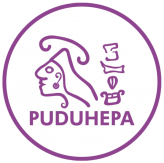Detox will clear the alcohol from your system, helping your brain to re-achieve balance. Dopamine production will return to normal, and other parts of the recovery program will offer things that will help your brain boost dopamine levels without chemicals. Therapy sessions will teach you coping techniques to deal with the triggers that fuel drinking. You may also receive treatment for depression at the same time, as it is one of the primary withdrawal symptoms.
- In addition, little is known about the molecular mechanisms of craving and addiction.
- Alcohol interacts with several neurotransmitter systems in the brain’s reward and stress circuits.
- Furthermore, the trend toward decreased dopamine release in the males with no abstinence might have become significant had those subjects been put through abstinence periods like the male subjects in Cohort 3 of this study.
Our staff includes master’s level counselors, licensed chemical dependency counselors, 24-hour nursing professionals, a staff psychiatrist, a staff chef, and direct care personnel. Our counseling staff provides individualized treatment https://artel1.ru/en/a-hangover-how-to-get-out-what-helps-with-a-hangover-the-best-means-at-home.html and care for our clients with an emphasis on tailoring treatment to the specific needs of each individual. Additionally, our staff provides family counseling, relapse prevention, life skills, and grief and trauma counseling.
Alcohol Overdose
In addition, those individuals may be predisposed to drink more heavily and develop an alcohol addiction. Individuals with low dopamine levels may experience a loss of motor control, such as that seen in http://esenin.ru/bibliografiia/1980-g/zarubezhnye-izdaniia patients with Parkinson’s disease. They can also develop addictions, cravings and compulsions, and a joyless state known as “anhedonia.” Elevated levels of dopamine can cause anxiety and hyperactivity.
- The main inhibitory neurotransmitter in the brain is gamma-aminobutyric acid (GABA).
- Abnormal serotonin levels within synapses may contribute to the development of alcohol abuse, because some studies have found that the levels of chemical markers representing serotonin levels in the brain are reduced in alcoholic humans and chronically alcohol-consuming animals.
- To activate hippocampal GABAergic neurons, serotonin binds to the 5-HT3 receptor.
- We also offer other amenities such as dietician-prepared meals, mindfulness-based meditation training, outings, and fitness training.
- Alternatively, the serotonin metabolite levels in alcoholics could be reduced, because less serotonin is broken down in the brain.
- In clinical trials in Sweden, alcohol-dependent patients who received an experimental drug called OSU6162, which lowers dopamine levels in rats, experienced significantly reduced alcohol cravings.
Unfortunately, some diseases can disturb the brain’s delicate balance of dopamine. Parkinson’s disease and certain metabolic disorders, for instance, can deplete dopamine.
Interactions With Dopamine
Therefore, scientists are paying increasing attention to the integration of communication systems in the brain. Although the study of neural integration is in its infancy, enough has been learned to help guide future research. This article suggests mechanisms by which alcohol consumption may affect multiple neurotransmitter systems to influence behavior. Over time, excessive drinking can lead to mental health problems, such as depression and anxiety. Alcohol abuse can increase your risk for some cancers as well as severe, and potentially permanent, brain damage. It can lead to Wernicke-Korsakoff syndrome (WKS), which is marked by amnesia, extreme confusion and eyesight issues.


Some states have higher penalties for people who drive with high BAC (0.15 to 0.20 or above) due to the increased risk of fatal accidents. During acute and protracted withdrawal, a profound negative emotional state evolves, termed hyperkatifeia (hyper-kuh-TEE-fee-uh). These brain changes related to excessive alcohol use underlie many AUD symptoms. https://pacient-net.ru/dieti/1281-glyuten-i-revmatoidnij-artrit-poleznie-i-vrednie-produkti.html Here, we outline a framework for understanding alcohol-induced changes in the brain, which can help you appreciate the challenges faced by many patients with AUD when they try to cut back or quit drinking. We then describe evidence-based treatments you can recommend to patients to help the brain, and the patient as a whole, to recover.
Gene expression analyses
It is classified as a catecholamine (a class of molecules that serve as neurotransmitters and hormones). It is a monoamine (a compound containing nitrogen formed from ammonia by replacement of one or more of the hydrogen atoms by hydrocarbon radicals). Dopamine is a precursor (forerunner) of adrenaline and a closely related molecule, noradrenalin.
- Consequently, alcohol’s effects on serotonin may alter the activity of GABAergic neurons in the hippocampal formation.
- Knowledge of the higher levels of neural integration is required to completely determine how alcohol affects these processes.
- Of particular importance regarding the role of opiate systems in alcohol reinforcement is the recent finding that opiate receptor blockers (e.g., naltrexone) reduce craving and alcohol consumption (Valenzuela and Harris 1997).
- Indeed, in rodent models, alcohol abstinence or withdrawal periods are often followed by enhanced rebound alcohol drinking, the alcohol deprivation effect [66].
- As part of a collaborative effort examining the effects of long-term alcohol self-administration in rhesus macaques, we examined DS dopamine signaling using fast-scan cyclic voltammetry.
Furthermore, the trend toward decreased dopamine release in the males with no abstinence might have become significant had those subjects been put through abstinence periods like the male subjects in Cohort 3 of this study. Neurotransmitters are chemicals that allow signal transmission, and thus communication, among nerve cells (i.e., neurons). One neurotransmitter used by many neurons throughout the brain is serotonin, also known as 5-hydroxytryptamine (5-HT). Serotonin released by the signal-emitting neuron subtly alters the function of the signal-receiving neurons in a process called neuromodulation.

